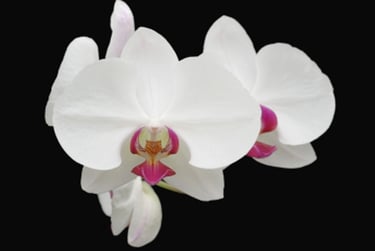Are You a Spiritual Progressive?
To be progressive in the context of spirituality means approaching spirituality with an open, evolving, and inclusive mindset, rather than adhering to rigid doctrines or traditional religious structures. It often involves questioning established beliefs, embracing diversity, and integrating new ideas, experiences, and knowledge into one’s spiritual journey. Here are some key characteristics of progressive spirituality:
1. Open to Personal and Collective Growth
Progressive spirituality sees spiritual understanding as something that evolves over time, both on a personal level and in society.
It encourages ongoing learning, self-reflection, and openness to new perspectives rather than clinging to static beliefs.
2. Inclusive and Accepting of Diverse Beliefs
A progressive spiritual approach values wisdom from multiple traditions, philosophies, and scientific discoveries rather than insisting on one "true" path.
It emphasizes unity over division, seeing different spiritual paths as complementary rather than contradictory.
3. Prioritizes Experience Over Dogma
Instead of relying solely on scriptures or institutional teachings, progressive spirituality places a high value on personal experience, intuition, and direct connection with the divine, the universe, or the self.
It encourages individuals to explore spirituality in ways that resonate deeply with their own experiences and values.
4. Advocates for Social Justice and Compassionate Action
Progressive spirituality often ties closely to ethical living, activism, and concern for social justice.
It promotes values like equality, environmental responsibility, LGBTQ+ inclusion, and human rights as spiritual imperatives.
5. Embraces Science and Rational Thought
Unlike rigid religious fundamentalism, progressive spirituality is open to scientific discoveries and integrates them into spiritual understanding.
It recognizes that science and spirituality do not have to be in conflict but can complement each other in exploring the nature of existence.
6. Encourages Interfaith and Interdisciplinary Dialogue
Progressive spirituality fosters conversations between different religious traditions, secular perspectives, and philosophical disciplines.
It values insights from psychology, neuroscience, philosophy, and even art as part of the spiritual journey.
7. Focuses on Inner Transformation and Wholeness
Rather than fear-based teachings about sin or punishment, progressive spirituality emphasizes personal growth, healing, and achieving a sense of wholeness.
It promotes practices like meditation, mindfulness, gratitude, and self-awareness as ways to deepen spiritual connection.
8. Questions Authority and Challenges Traditional Power Structures
Many progressive spiritual individuals challenge religious hierarchies, dogmas, and exclusivist claims about truth.
They believe that spirituality should be empowering rather than controlled by institutional authority.
9. Seeks Harmony Between the Material and Spiritual Worlds
Progressive spirituality does not necessarily separate the sacred from everyday life; instead, it finds spiritual meaning in the ordinary.
It embraces a holistic view, where spirituality, relationships, work, creativity, and well-being are interconnected.
10. Recognizes the Mystery of Existence
Instead of seeking rigid answers, progressive spirituality embraces the mystery and paradox of life.
It acknowledges that some questions may never be fully answered, and that uncertainty can be a meaningful part of the spiritual journey.
Who Might Identify with Progressive Spirituality?
People who are spiritual but not religious (SBNR).
Those who have left traditional religious institutions but still seek spiritual meaning.
Individuals engaged in social justice and ethical living as part of their spirituality.
Those who blend multiple traditions (e.g., Buddhist-Christian, science-spirituality integration, nature-based spirituality).
Seekers who value personal experience over rigid beliefs.
A Final Thought.
Being progressive in spirituality is about growth, openness, and transformation. It’s a mindset that values inclusivity, exploration, and authenticity—encouraging each person to find their own unique path while honoring the shared humanity in all spiritual journeys.
Contact Me
Copyright © 2023 by Dianne Edleman, PhD. All rights reserved.

